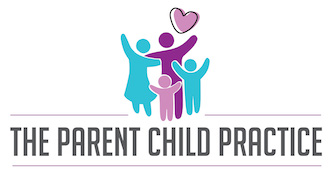This week I was on Pinterest looking for items to "pin to my boards" and I came across a great "pin" from a blogger entitled, Just In Case. Her blog post "What a Ride" chronicled the random acts of kindness that she completed, with the help of her children, for her 35th birthday. I found her blog post very interesting. I also thought it was a fascinating display of the character traits, optimism and gratitude. The blogger shared heartfelt stories about people overwhelmed with gratitude because of the kindness shown to them during that day. Overall, it appeared that the blogger and her children had an extremely positive experience showing kindness to others and they encouraged readers to have a similar experience.
Personally, I know that I enjoy demonstrating random acts of kindness towards others. This type of exchange between myself and another person often evokes pleasant feelings such as worth, optimism, gratefulness and humility. Several years ago I had the pleasure of paying the loan off my Toyota Corolla and giving the car to my grandmother who was in need of a vehicle. Although my grandmother would likely adamantly state that she was the happier person in our interaction, I would challenge her by saying I was a close runner-up in this "happiness race." Giving my vehicle to her was probably one of the happiest moments in my personal life --- it felt GOOD to give to someone else. During that moment, I truly understood the statement "It is better to give than to receive."
The idea of random acts of kindness fits well with the practice of Positive Psychology, pioneered by Martin Seligman and Mihaly Csikszentmihalyi. Positive psychology is a strengths-based approach to life; it promotes wellness and wholeness and is opposite of our current "deficit-based medical model" which focuses on disease and lack of quality in life. Positive psychology focuses on (1) positive experiences, (2) enduring psychological traits, (3) positive relationships and (4) positive institutions (Wikipedia, http://en.wikipedia.org/wiki/Positive_psychology). The reason I believe random acts of kindness fits well in this model of psychology is because it encourages optimism and resilience in the "giver" and the "receiver." It allows both parties to believe that good things happen in the world -- often without cause or reason. This sort of belief inherently inspires hope in people, increases one's overall happiness and long-term perspective about life and their ability to go through life's challenges.
As a psychologist I often witness families burdened by the challenges which life hands them (or throws at them in some cases!) and sometimes their family structure collapses because of the burdens they attempt to bear. As a result, children and adults may feel disillusioned and they may have a negative lens that "life is unfair," "nothing good ever happens," or "people don't care about me or my problems." During my treatment with these families I encourage them to tear down the negative lens by teaching them and their family to display kindness to the others despite the problems which may occur in their family. I believe that when you focus on ways to pour into the lives of others you distract yourself from your own shortcomings and re-shift your lens about negative events in your life. Finally, you also teach your child(ren) how to become empowered through kindness and that circumstances do not rule who they are and who they want to become.
CHALLENGE: This week I encourage you to sit down with your family and make a list of random acts of kindness (1. Bring in a neighbor's trash, 2. Make breakfast for your sibling, 3. Help an elderly person with their groceries, 4. Leave someone a thank you note, etc) and place them in a jar and commit to carrying out the random acts of kindness as a family. I promise that this simple act will make you and your children feel happier with the knowledge that you are bringing happiness to others.
As Lao Tzu says, “Kindness in words creates confidence. Kindness in thinking creates profoundness. Kindness in giving creates love.”
Related articles
Random Acts of Kindness Festival a big hit (irishcentral.com)
29 Gifts: Random acts of kindness (artoflivingsblog.com)
Just Be Happy? Striking a Balance with Positive Psychology... (psychcentral.com)



